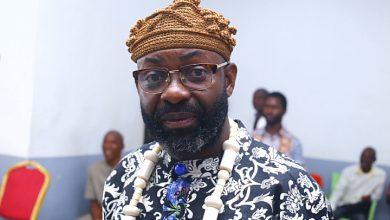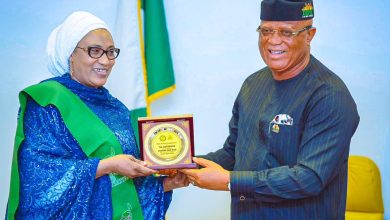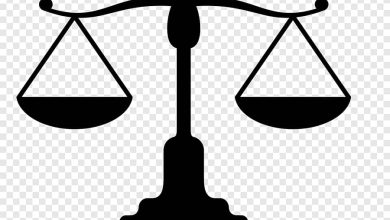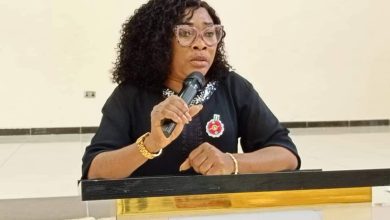Sexual Abuse: The Males Are Not Exceptions

Whenever and wherever sexual gender-based violence is mentioned, almost always the attention of the public is focused on a girl child and woman. The thought of rescuing the victim from the horrific situation and the sympathy or empathy of the people is immediately and remotely moved to the female gender. This has developed over time and people are made to believe that the cohesive sexual activities can only be associated to female gender. The result is in the massive protection of the girl child than the boy child.
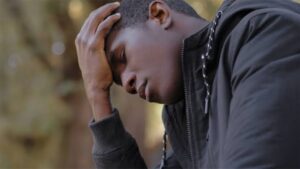
In many households for instance, female children are intentionally caged indoors to avoid being tainted within any way, while the males are left to roam the streets because there is this myth of a boy child being strong enough to take care of himself and not vulnerable to be preyed upon by criminally-inclined persons.
This societal belief has however exposed most male children to be severally abused by both relatives and strangers before they even attain adulthood. Consequently many men in Nigeria are likely to have been molested in their childhood due to parental negligence or complacency.
What has been gathered by this reporter reveals that male children also stand the risk of being victims of rape. They could be victims in the hands of older male children, adult male, older female or even a gang of those in their peer group. It is interesting to note that women can perpetrate in the crime of rape just as some men are known for sexually assaulting the young and old female folks.
Read also: AKHA Moves Against Plea Bargain In Gender-Based Violence Cases
Comrade Joseph Effiong, a one-time chairman of the Nigerian Union of Journalists (NUJ) in Akwa lbom State, narrated his rape ordeal on social media of how he was cajoled when he was barely 17 years old by a girl who was older than himself.
He said: “My instant girlfriend, who cajoled me into having sex I had never bargained or psychologically prepared for, immediately left after the act and I was ashamed of myself feeling so dirty.
From that day, a hitherto boisterous Joseph Effiong, who would send the assembly hall at his secondary school into graveyard silence when making announcement for compound work, began to stutter when addressing the students.”
Another rape victim, Etimbuk Idiong, a cinematographer, said he was molested by three women on different occasions. “I was first molested when I was four years old by a lady who was in her 20’s. It occurred numerously because my mum usually left me in her care whenever she was going for work.
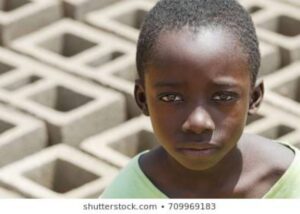
“Few months later, we got a maid and she continued from where the caretaker violator stopped and it occurred for few months, by this time I was five years old. When she left, a certain lady who volunteered to be helping my mum when she was pregnant did same to me”, Idiong said.
He further lamented: “The truth is, I started knowing it was all wrong when I started mingling with other children in the yard. I thought of how to tell my parents but I just couldn’t because I was always afraid they were going to beat the hell out of me”.
A horrific incest case was reported in Daily Mail of February 8, 2019 where a 51-year old mother raped her teenage son at the age of 15 to please her perverted husband. The mother however pleaded guilty at Maryborough District Court, Australia, to seven-count of rape and was sentenced to nine years in jail with a chance for parole in four years.
Another man who did his National Service assignment some years ago in Rivers State also gave his account of how he was raped by his mother’s friend when he was in pre-nursery session, at a time he was about five years old.
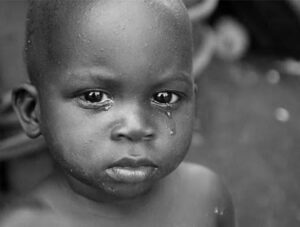
According to him, he had to spend the night in the culprit’s apartment since he was exhausted after the act. His friend’s mother was fun of calling him “my husband”, and daily she would come often to seek his assistance on domestic chores.
It is pertinent to note that male children who were sexually harassed at minor or teenage also went through traumatic experiences as the females do, and they may also face some major additional challenges because of social attitudes and stereotypes about men and masculinity.
Etimbuk said the sexual violence he suffered in his childhood days is still fresh in his memory and the effects of it has resulted in him not trusting women, having lack of confidence and being protective.
Dr Herbert Batta, an expert in Communication, is of the opinion that the effects of sexual violence in male gender are more mental, psychological and emotional than physical.
According to him, it makes the boy grow into a man who thinks women are cunning, exploitative, manipulative and seductive. It’s traumatic all the same.”
Michael Obong believes the damage is worse with the male child, noting that the effects can be heavy emotional unrest which is characterized by insatiable behavior, which is, making the urge for sex indescribably worrisome such that even in the face of weakness, the libido still appears unappeasable.
Christopher Xyztus corroborated Obong’s position as he disclosed that the result of the illicit act made him desire sex from older ladies more often as a child and he emphasized that the culprits are always known to the victims.
Though it has been established in a number of instances that male children are also rape victims, it is sad that this sounds rather absurd to believe in both African and foreign countries.
One of the male victims said on BBC: “We’re scared to talk about it and embarrassed, and when we do talk about it, we’re not believed, because we’re men. How can a man possibly be abused? Look at him, he’s a man.”
Obviously this means culture of silence and stigmatization also affects most males after they must have been sexually abused. There are instances where men are often ashamed to report the sad experiences to law enforcement agents. They may report domestic abuse without mentioning the sexual abuse and some had endured varying types of sexual violence from different perpetrators, including men and women.
Does this mean that sexual violence against men and boys can be more common than previously thought? Sadly many cases of male rape go unreported because of the social stigma attached to it. In some countries like Nigeria, it is considered unmanly for a man to cry, because the male stereotype depicts men as being able to protect themselves.
Dr Chris Dolan, director of The Refugee Law Project, an organisation that provides legal aid to asylum seekers and refugees in Uganda, explains that the main reason that fewer men come forward is that people assume they should be invulnerable and that they should fight back.
According to Malaysian Medical Association (MMA) president, Dr N.K.S. Tharmaseelan, “male victims are often left to suffer alone. He added that “males can be more damaged by society’s refusal or reluctance to accept their victimisation and that they must tough it out in silence.”
It is quite unfortunate that most males don’t get to report their perpetrators because they would be questioned about their sexual orientation by security agencies and that is why there are minimum reports on male rape crimes.
Consequently, efforts from the part of governmental agencies, NGO, religious and social organisations among others to arrest the male rape crimes seem to be minimal because of this societal belief that men are strong enough to handle any traumatized situation.
Related: Why We Opted For Capital Punishment Against Rape – Deputy Speaker
This can be related legally, Evans Ufeli, a Human Rights lawyer who has been handling sexual assault cases for over a decade, says “cases are not effective enough because some [instances of] rapes are not recognised in the eyes of law. Sometimes after medical examination [when] we find no signs of force or bruising, the law does not recognise that as rape.”
When a male is raped, the effects of sexual violence is more emotional and psychological rather than physical, and that is why an estimated four out of five male victims do not report the sexual harassment, they rather wallow in the dark to avoid stigma and doubtfulness.
Reasons behind women sexually abusing male children often differ from men’s according to Xanthe Mallett, a forensic criminologist. She explained: “A significant number of females who sexually abuse children fall into the “teacher/lover group”, this comprises women in their 30s who victimise males with an average age of 12 years. The women may see the relationship as based on love, and may not see it as abusive or recognise its inappropriate nature.
“Women in this group can be driven by a need for intimacy and trying to compensate for emotional needs not met elsewhere. This group can include the female teachers who become sexually involved with male pupils. They find adolescent boys less threatening than men of their own age, and have more control over the relationship.
Another category is what one researcher has termed the “predisposed molester”. “Women in this group often experience abuse themselves and may have addictive personalities, “ she hinted.
UNICEF reported in 2015 that one in four girls and one in 10 boys in Nigeria had experienced sexual violence before the age of 18. According to a survey by Positive Action for Treatment Access, over 31.4 per cent of girls there said that their first sexual encounter had been rape or forced sex of some kind.
But how can we be certain of this statistics when we have a situation where most boys decide not to report the matter because they have no idea of the illicit acts being “ canal knowledge “ as stated by the law or they may be too ashamed of letting people know to avoid unnecessary mockery from friends or not to be believed by their parents.
Despite the progress made in many countries to educate the public on consent and sexual assault, male rape is still not widely discussed or legally recognised. This makes it difficult for victims to talk about their traumatising experiences and to seek help.
It has been considered by many that it is important that deliberate actions be taken by the government agencies, NGOs and other relevant bodies to give proper orientation to people on the need to protect the male children too. This, as opinionated, should start from the home.
The society should also be given proper orientation on male rape crime to eradicate this toxic masculinity of males being strong enough to handle any situation because of being perceived as strong vessel or superhuman. Men are humans and they may not be strong enough as the society misconstrues them to be. They have human rights and they deserve to be given a listening ear just as women are listened to when they are sexually violated by those perpetrating the ignoble act.
In all, protection for the males, especially children, is as desirable as it is for a girl child and women.

